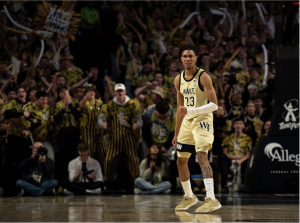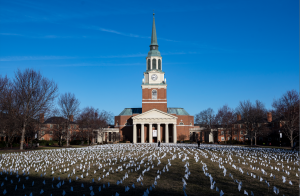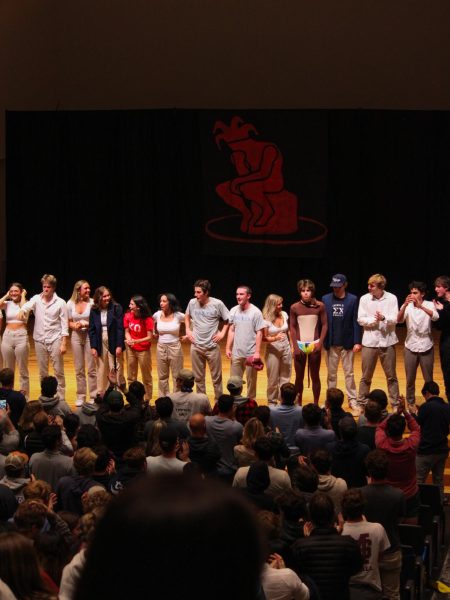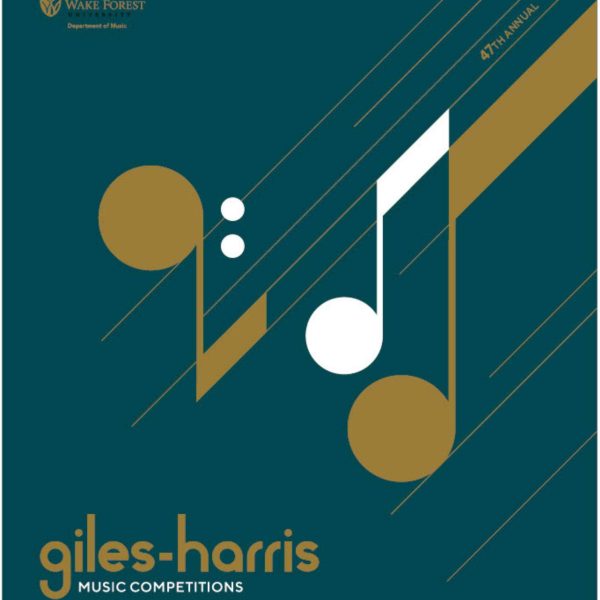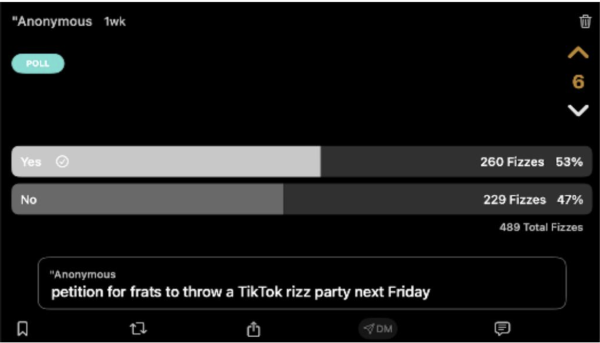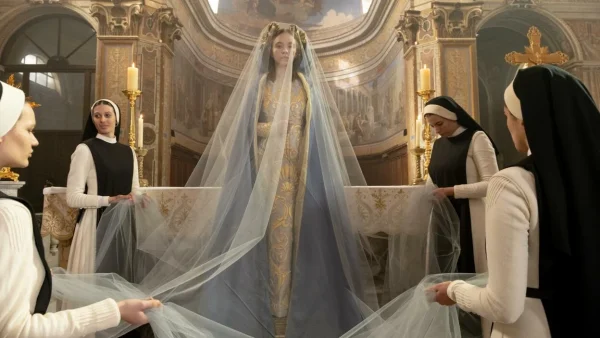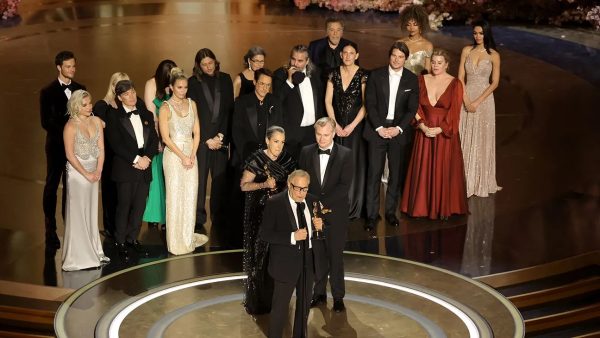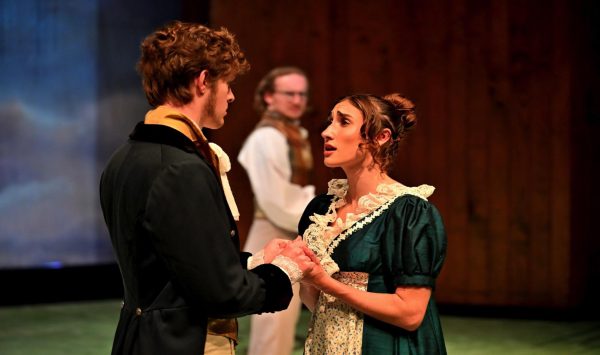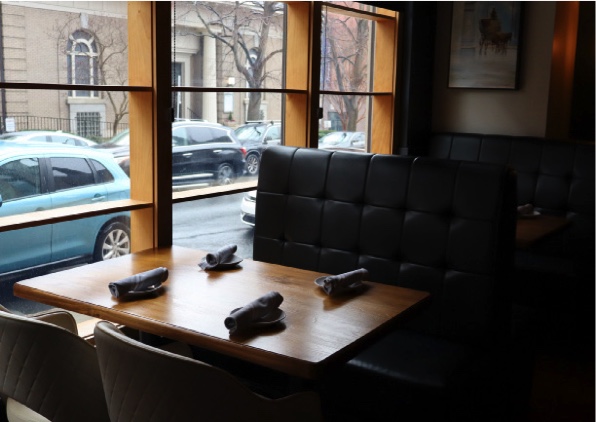Wayward Fashion presents Earth Day show
Student-led organization Wayward Fashion presents a fully sustainable fashion show for the student body, illuminating the intersections between sustainability and clothing

The fashion show will be on April 23 and will celebrate Earth Day through the merging of sustainability and fashion.
April 22, 2021
Several student-led organizations are celebrating Earth Day on April 22 with informational events and exciting activities. Among these groups is Wayward Fashion — a sustainable fashion page created by President Alyse Harris (‘24) and Vice President Virginia Wooten (‘23) to teach students about buying second-hand clothing and how doing so can benefit our planet.
The duo began Wayward Fashion in January to encourage students at Wake Forest to buy from small businesses, secondhand stores and local artists. Throughout the semester, Wayward Fashion has been posting student spotlights on their Instagram page to showcase students with bold and defiant styles. Additionally, the fashion page recognizes and promotes unique artwork and clothing from small artists at Wake Forest and around the globe.
Wayward Fashion strives to celebrate self-expression through individuality and creativity in a sustainable manner.
“The thing that makes Wayward unique is that this is one of the first student-run organizations highlighting creative expression in a sustainable manner,” Wooten said when asked about the club.
This Friday, Wayward Fashion will be holding their first fully sustainable Earth Day fashion show under the Breezeway of The Scales Fine Arts Buildings from 5 – 7 p.m. Capacity is limited to 50 people, but that won’t stop the crew from putting on a spectacular show. All 50 spots were filled in just a couple of days through The Link.
The entire show is produced by Wake Forest students with support from several sponsors, both on and off-campus. Secondhand stores in Winston-Salem, such as The Snob Shop, Finders Keepers and Style Encore provided the thrift outfits for the models. The Office of Wellbeing and the Student Activity Fund assisted with organizing the event as well. All 15 models in the show are Wake Forest students who will be wearing fully sustainable clothing and jewelry.
While talking with Harris about Wayward Fashion’s message, she stated: “With this fashion show, we hope to show students at Wake Forest that it is both easy and accessible to shop sustainably and as a byproduct, express yourself fully.”
The show will also be live-streamed for students, staff and families who were unable to grab a spot in person.
The featured logo was created by Harris and her mother. She explained the significance of the images by saying, “I wanted to not only represent our fully female staff but to also show that sustainability can be fun. This design is primarily inspired by Earth Day and sustainability in fashion.”
The other members of Wayward Fashion include the incredible women Roxie Ray (‘23), Judy Assaad (‘24), Abby McCabe (‘24), Tatum Pike (‘24), MK Englehardt (‘24), Leanna Bernish (‘24) and myself. The images featured to promote the fashion show were created by Wayward Fashion’s graphic designer, Judy Assaad. Ray helps out as Vice President, McCabe manages the social media page and small artist spotlights, Englehardt handles student outreach and Bernish is the event planner. Lastly, Pike and I are caption and writing editors. Together, our female power group has acquired over 200 followers on Instagram and organized the unique fashion show.
Wayward Fashion intends to hold the fully sustainable Earth Day fashion show every year while the crew is at Wake Forest. “We are showing students how to express themselves through fashion in a way that is ethical and better for the environment, while simultaneously allowing a new sense of creative freedom through sustainable fashion,” Wooten said.
By purchasing clothing, jewelry, and shoes from secondhand stores and small businesses, people are able to avoid sweatshops and other clothing brands solely motivated by the bottom line. The alternative options provide individuals the ability to save money, help small businesses and purchase clothing in an ethical way.
Wayward Fashion will continue to give shoutouts to small artists and businesses and post student spotlights on their Instagram account. If you or others know of any relevant small artists or businesses, send them to Wayward Fashion’s Instagram page @waywardfashion.wf. Students can also submit photos of themselves or others in secondhand clothing to be featured on the page.
Students can shop more ethically by avoiding businesses like Amazon and Shein for clothing, and instead shop at the local Goodwill or Uptown Cheapskate. Another eco-friendly fashion trend: make your own clothes either out of old outfits or consider starting from scratch with a good old sewing machine! Wayward Fashion hopes to teach students and others to be aware of their clothing and where it comes from.
Similar to caring about what’s in your food and how it’s made, people are encouraged to care about what’s in their clothing and how it’s made. So, next time you want a new outfit, shoes or jewelry, do some research to find an ethical business or second-hand store in your area that provides affordable, creative and eco-friendly clothing.








